‘Writing Brecht’ reaches out, and fades out …
As many of the readers of Communications will know, for the past five years I have been heading up a project at the University of Oxford, which has been devoted above all to extending the corpus of Brecht’s works that is available in English (see: http://brecht.mml.ox.ac.uk/). This has been a wonderful opportunity to work with an international array of senior scholars and younger colleagues and friends, to whom I am extremely grateful for the experience and the work we have been able to produce together. We have been supported by an even wider and more international cast of advisors and well-wishers. The project is now winding down and I expect to archive the website over the summer.
The book-length publications have numbered two volumes of Brecht’s theoretical and practical writings about the theatre: a revised and extended edition of Brecht on Theatre and a new volume, Brecht on Performance, containing the Messingkauf and extracts from the Modelbooks – both edited by Marc Silberman, Steve Giles and TK (November 2014); the Berliner Ensemble Adaptations, edited by David Barnett (July 2014). a collection of Love Poems, translated and edited by David Constantine and TK (with W.W. Norton, November 2014); Brecht's Me-Ti, a collection of fragments, aphorisms and poems, translated and edited by Antony Tatlow (July 2016); and the unfinished novel The Business Affairs of Mr Julius Caesar, translated by Charles Osborne, available for the first time in English translation (ed. Anthony Phelan and TK, January 2016)
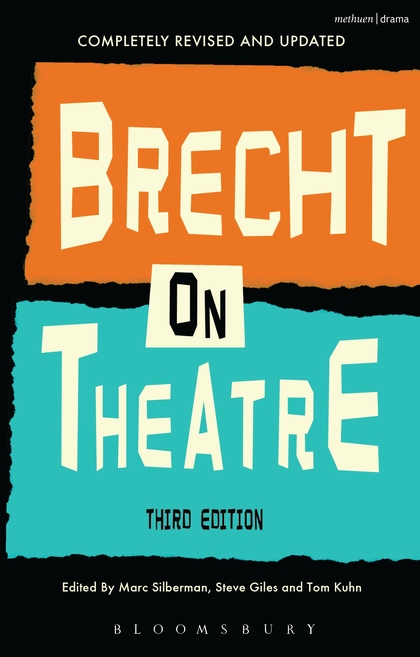
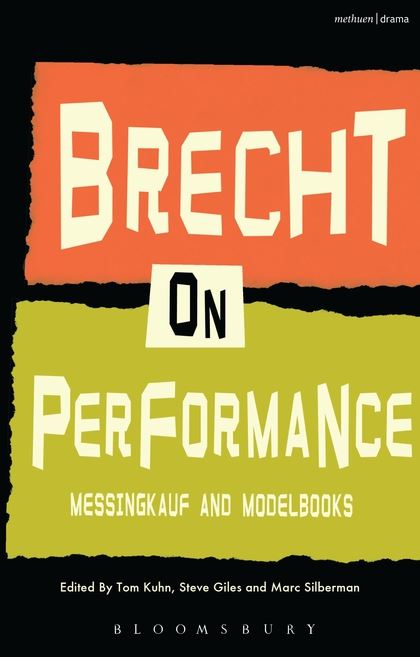
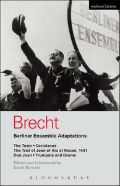

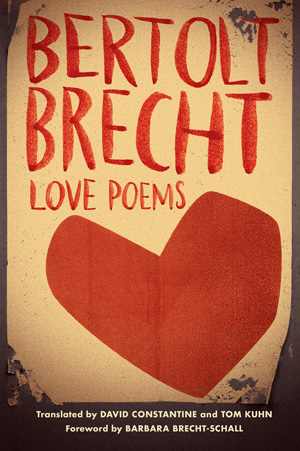
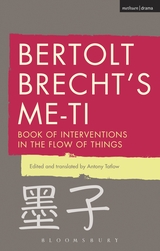
2018 saw the publication of The Collected Poems of Bertolt Brecht - over a thousand poems, translated and introduced by TK and David Constantine (W.W. Norton); and the Brecht Yearbook 42: Recycling Brecht (Camden House), edited by TK and David Barnett, a collection of essays arising from the conference held in Oxford in 2016. Just out this year is Brecht and the Writer's Workshop, a collection of Brecht's dramatic fragments, translated into English and collected together for the first time (Bloomsbury), edited by TK and Charlotte Ryland.
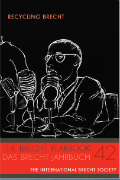
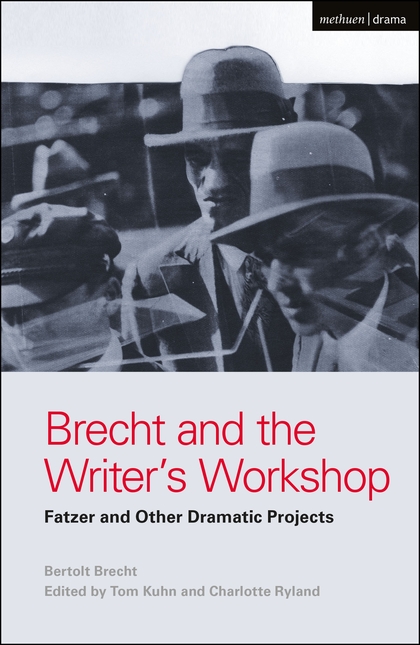
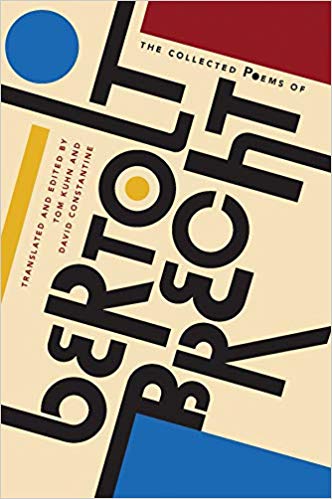
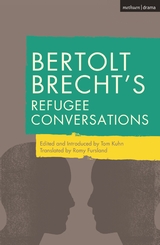
Later this year, Brecht’s Refugee Conversations (Flüchtlingsgespräche) will come out with Bloomsbury, in a translation by Romy Fursland – again the first time there has been a complete version of this wonderful text in English.
As well as all the scholarly activity, the editing and translating, the conferences and so on, we have had the opportunity to reach out and engage with a wide variety of different audiences and practitioners in the arts. We have worked with theatres and directors (especially on productions of Fatzer and Arturo Ui) and a large number of actors and musicians. We have visited schools and colleges and literary festivals. For the English translations of some of Brecht’s poems we have commissioned new musical settings, by Richard Thomas and Niels Rønsholdt (which will be recorded in the summer). We hope there will be a production of Fleischhacker, directed by Phoebe von Held, and possibly of Refugee Conversations too.
Brecht’s work, as we all know, has moments which are extraordinarily current. Far from being passé, too historically specific or too abstract, or humourless, or in whatever other way missing its mark, in fact it is often as topical, direct, urgent and unsettling for modern readers as it was for his own contemporaries. It is a shame on us that we still live in a world that Brecht would so very easily have recognised: where persecution, forced migration, trafficking and slave labour, homelessness and hunger are common, where state violence, strutting populist leaders and rampant corporate capitalism are all the order of the day. ‘Late capitalism’ proves adept at inventing ever ‘later’ and more awful forms. ‘The great day when I become useless’ has not come to pass: ‘That will be a glad day when one can say: Put away the weapons, they are not needed!’ We still need Brecht, in all languages.
These are the qualities which make it incumbent upon us to take Brecht’s work out into the wider world, where we see an opportunity. Let me pick out two highlights of our recent ‘engagement’ work. First, a project with an Oxford charity for the homeless, Crisis Skylight. This started with a series of workshops, reading and talking about some Brecht poems with people of all ages who are homeless or vulnerably housed. Emboldened by that it became a writing workshop, in which the participants drew on their own experience and produced some exceptionally good work. That, in turn, led to a performance, supported by Sphinx Theatre (two nights sold out in Oxford), and finally to a small publication, Words As Weapons, juxtaposing the work of Crisis members with poems by Brecht himself. Second, a collaboration with a Berlin graphic workshop for the disabled called VIA Blumenfisch. This is an extraordinary organisation dedicated to supporting the lives of people with physical and learning disabilities and providing a safe workplace. As well as the graphic workshop, they work in wood, cloth, metal … and they have a catering section. In the closing months of 2018 the members of Blumenfisch produced a wonderful series of poster designs, inspired by quotations from the English versions of the poems. These are now on show in Oxford and at the Blumenfisch shop in Berlin (and available from me as a set of postcards, in exchange for a donation). It has been a real privilege to work with these people. The resonance we have had from our public work has been every bit as exciting as the response of the scholarly community.


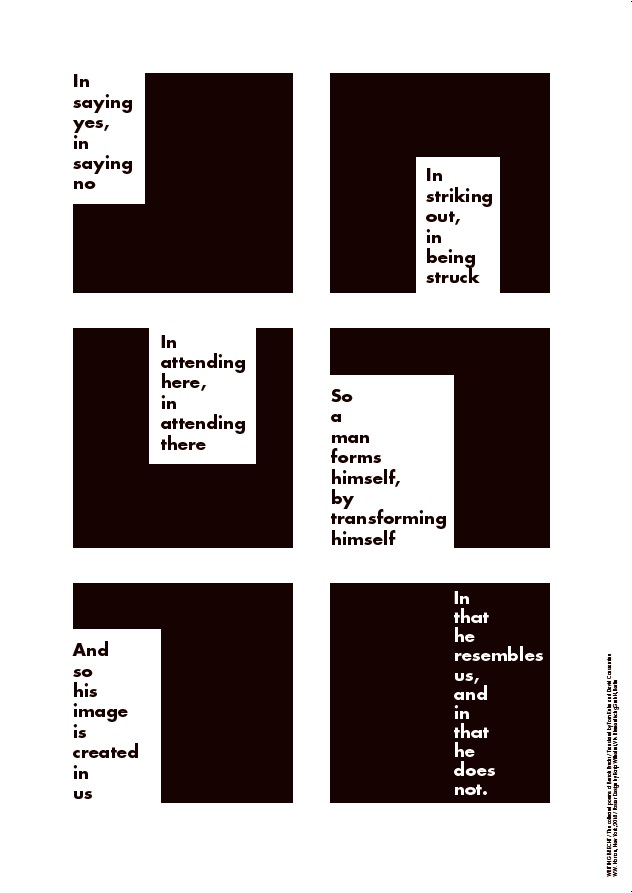
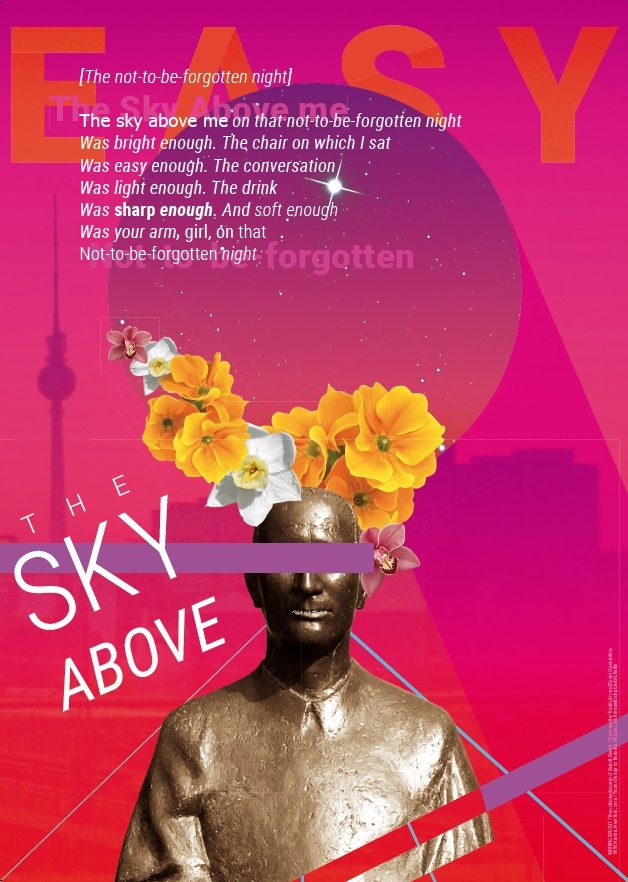
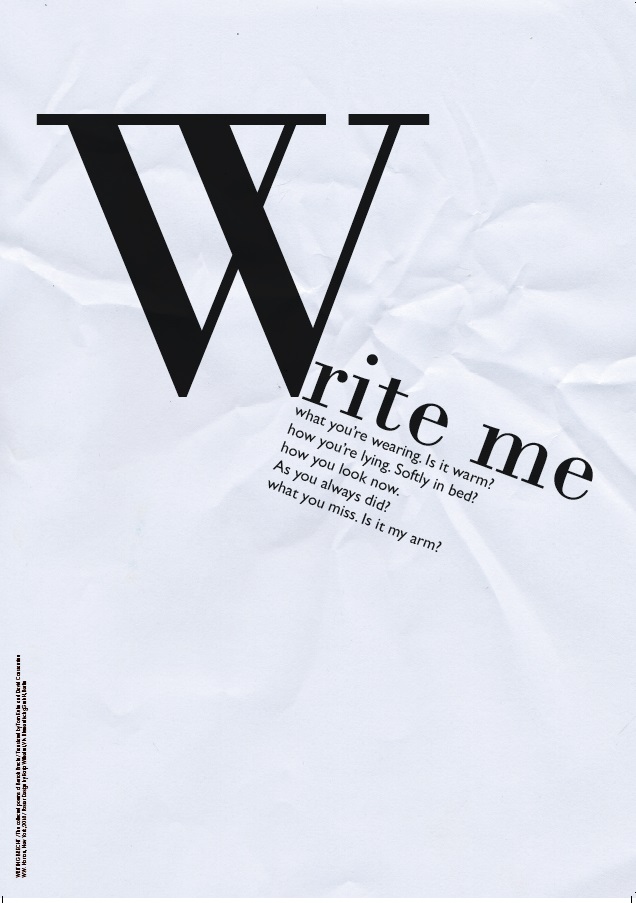
For their support of all of this we have to thank the UK Arts and Humanities Research Council (it pains me to have name them first because they gave the most money, for they are a faceless and robotic institution – and this is one of the few places where I might get away with saying that), the University of Oxford and my lovely college, St Hugh’s, the Arts Council of England, the inestimable Akademie der Künste, Berlin (especially the Brecht Archive), the Toepfer Stiftung, Hamburg, and a large number of individual benefactors. We owe huge thanks to the publishers involved: first the Suhrkamp Verlag, who have been wonderful at every turn, Bloomsbury, W.W. Norton, and Camden House. Especially our thanks are due, for their unwavering encouragement and support, to the Brecht heirs, first Barbara, and latterly Johanna and Jenny.
Thank you everyone!
Tom Kuhn
March 2019